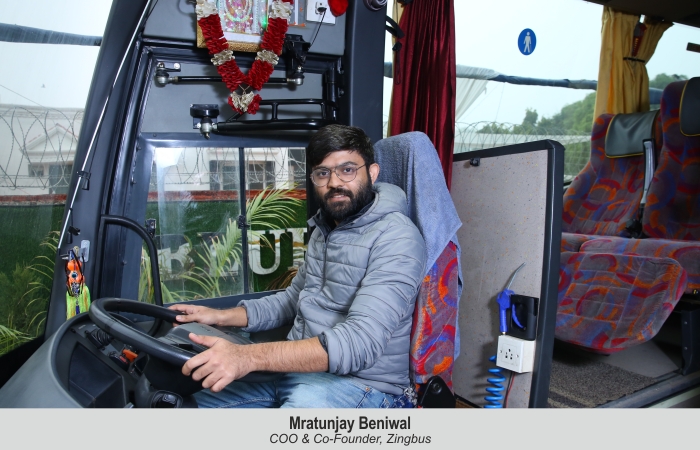
The lockdowns have lifted but the economic recovery is reeling under the threat of an impending third wave. The impact of this black swan event has been particularly distressing for the travel industry as both international and domestic travel sectorscontinue to experience uncertainty in demand recovery. However, with the second wave abating, India is seeing a significant increase in domestic travel space. Vaccination is playing a major role in travellers shedding their travel hesitancy and taking not only work trips but also making a beeline for tourist destinations.
Travellers have turned demanding today in terms of their expectations regarding the hygiene and safety norms followed during their travel cycle. Within such industry dynamics, bus aggregator start-ups like oursfind themselves in a unique position to build something valuable very quickly as our customer models already incorporate the customer expectations to a large extent. For example, contactless, hassle-free boarding process, amongst other technology tools like digital booking and payment and mindful cleanliness and environmental hygiene of the mode of transport and staff have always been the corner stone of zingbus customer interface. Therefore, we are strongly placed to fulfil customer’s post-covid need. Once a traveller associates a brand with safety and security, they will likely prefer it over others for the same purpose.
Simultaneously, peer bus aggregator brands have built tools for audits, boarding and demand management technology which help the struggling traditional fleet owners to cope with operational challenges with minimum manpower investment of their own. The extensive tools are enabling fleet owners and crew to restart their businesses with us by easingthe tasks of demand prediction, dynamic inventory allocation and remote fleet management. These interventions allow them to considerably reduce their relaunch costs.
To rebuild recovery and assure passenger safety it is critical to implement appropriate safety elements to restore customer confidence in a coordinated manner. Branded service providers have implemented a variety of safety protocols in the daily operations, such as fleet fumigation and sanitization at each terminal. Pre-boarding deep cleaning and sanitization of the bus, temperature check and mask check of crew and passengers are some basic yet strictly adhered to protocols.
The tier 2 and tier 3 cities have adopted and experienced a very high digitization of purchase in service industries. Investments made in technology by branded intercity bus service providers as a long-term vision became their immediate winning game-changers in the covid-infected world. Technology-led players have better customer connect due their better online presence. They are easily able to focus on customer communication which assures the customers on all their pressing needsrelating to safety protocols, hygiene standards, deep cleaning of buses, contactless travel, digital connect, etc. Hence, even though the overall demand in this segmenthas plummeted to 40-50% of pre-pandemic levels, but our category of service providers is seeing a significant increase in market share, with our sales having tripled in the last year.Therefore, the pace of digitalization in the travel industry will remain strong throughout 2021.
The future of travel is online, branded and technology driven. With the economy demanding attention, businesses are getting creatively aggressive and redoubling their sales and marketing efforts. This directly results in more people travelling. Also, the bounce back in mobility is directly proportional to the percentage of the working population getting vaccinated. At the current pace, we should see more than 80% of demand recovery before the end of this year.
 TravTalk India Online Magazine
TravTalk India Online Magazine




